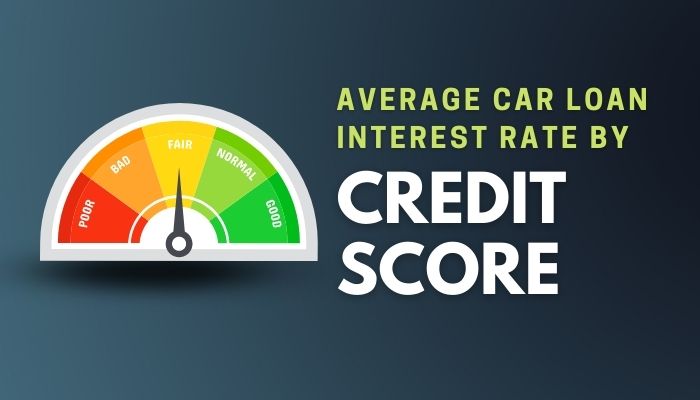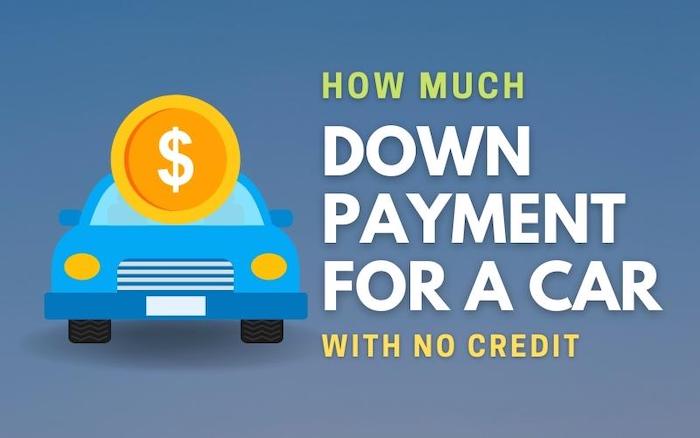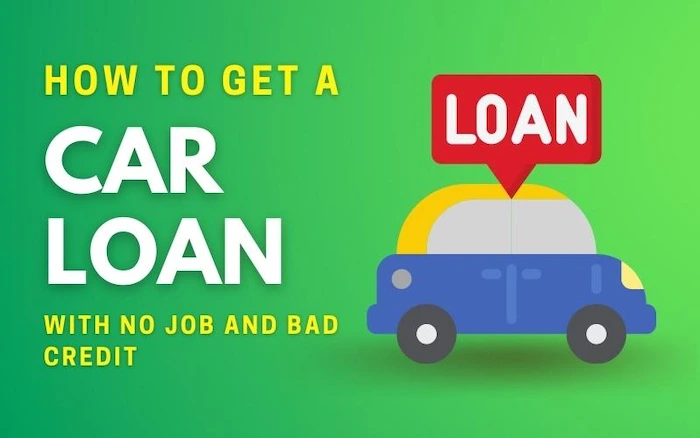How To Avoid Paying Sales Tax On a Used Car
Did you know that you can void paying sales tax on a used car? A sales tax is charged on car buyers and delivered to the state’s Department of Motor Vehicles (DMV). It is a compulsory charge and unavoidable most of the time. Luckily, most states have legal loopholes, which you can exploit to avoid paying any tax on a used car vehicle. While some of the legal loopholes are clearer, others aren’t obvious. The purpose of this article is to discuss how to avoid sales tax on a used car legally.
Is There a Sales Tax on Used Cars
Yes. You’re liable for a sales tax when you purchase a used car. The state collects the sales tax through the DMV. If you’re buying a used car in New York, you’ll pay the tax to the New York DMV. The DMV bills you the sales tax when you apply for the transfer of vehicle ownership. In most cases, the buyer pays the tax to the government.
The DMV requires car sellers to present the bill of sale. It works the same way when buying a car directly from the seller or a dealer. The statement shows the sale price from which the DMV deducts a sales tax. Some buyers might collude with sellers to understate the sale price. The DMV prevents that by requiring the sale price close enough to the car’s blue value.
How to Avoid Paying Sales Tax on a Used Car
There are many ways to avoid paying sales tax on a used car. All you need is to know the legal loopholes to exploit. Here are a few suggestions:
1. Buy from States with No Sales Tax
Several states do not charge sales tax on used cars. Once you have bought your vehicle, you can register it in that state and avoid paying tax. The inconvenience is that you have to travel to the state to purchase the car. It is a good option if your home is close enough to the car’s location, and you’re likely to save substantially from the resultant transaction. You won’t have to travel to buy a car in some cases. Reach out to the used car seller via the phone and pick up the vehicle.
Examples of states that do not charge a sales tax include Alaska, Delaware, Oregon, Montana, and New Hampshire. After buying the car, you can register it and drive away with it.
2. Move to a State with No Sales Tax
If you’re planning to move to a state with no sales tax, purchase a vehicle and then register it there. But that’s only possible if the car purchase happens 90 days before moving. Otherwise, it would not be possible for you to register it. Remember, registering the vehicle in the new state doesn’t tax evasion. After all, that’s going to be your home soon. Buy the car, move to your new home state, and contact the local DMV to have it registered.
3. Register the Car in a No Sales Tax State
Probably, you live in a state where sales tax is a must. Why should you insist on buying and registering the vehicle in your state? In Alaska, Delaware, Oregon, Montana, and New Hampshire, governments do not charge sales tax on used cars. Purchasing a vehicle in any of these states and registering it is an excellent way to save money.
That can be not easy since you need an address in that state. If the government discovers you to be using a dummy address, it could accuse you of tax evasion. When that happens, you’ll have to pay the tax and a fine for trying to evade taxes. However, it is worth trying.
4. Take Advantage of Sales Tax Exemptions
You can get exempted from sales tax regardless of your location in some situations. The following are the conditions that could result in no sales tax on a used car:
- Purchase of an Electric or Hybrid Car: Electric and hybrid used cars can result in sales tax exemption. Importing a used hybrid car can help you get a 50% sales tax exemption at the very least. This encourages people to purchase electric or hybrid vehicles because of their fuel efficiency. Electric and hybrid cars also emit limited amounts of carbon dioxide and don’t pollute the environment. With the sale tax exemptions, governments hope to increase the number of electric and hybrid cars on the road.
- Disability Exemption: Persons living with a disability can purchase a used car without paying any tax. That’s because individuals with a physical disability require a vehicle to move around effectively. The government exempts disabled people from paying sales tax to make it easier to own cars.
- Classic Vehicles: Classic cars manufactured at least 40 years before January 1 of the current year automatically qualify for sales tax exemption. That means that purchasing a classic car is one way of avoiding paying sales tax. However, these exemptions may only apply in some states and not throughout the United States.
- Vehicles for Forestry or Agricultural Purposes: One of the surest ways to avoid paying tax on a car is to purchase it for forestry or agricultural purposes. Of course, you won’t qualify for a sales tax exemption in this category when buying a vehicle for personal use.
5. Claim Tax Credits When Filing
Did you know that tax credits can help you avoid paying sales tax on a used car? A good example is when buying an electric or hybrid vehicle. The tax credits may range from 50% to 100% of your sales tax bill. So, if you get the maximum possible credits, you might end up not paying any sales tax. If you bought a new vehicle in 2009, you qualify for tax credits on any vehicle you purchase now.
6. Register a Company in a No Tax State and Buy Through It
You may want to purchase and register a car in a no-tax state, but you don’t live there. The best strategy is to register a company in your target state and purchase a vehicle through it. For example, if you live in California, you could register a company in Montana, where there is no sales tax on used cars.
You don’t have to go to Montana physically to register your company. Talk to a registered attorney or agent to help you do that. With that, you’ll get a Montana address, which is a requirement when registering a vehicle in the state. The agent or advocate will do for you all the paperwork, including buying and registering the car. With that, you wouldn’t have to be in Montana in person. You’ll also avoid paying any sales tax to the DMV.
How Much Is Sales Tax on a Used Car
The sales tax rate varies from state to state. While some states do not charge sales tax, others may charge anything between 3% and 8%. States, where you won’t pay any tax include Alaska, Delaware, Montana, New Hampshire, and Oregon.
State governments are in charge of roads and automobiles within their jurisdictions. They, therefore, have the freedom to determine how much they can charge in sales tax. The tax rates are based on the state’s financial needs and other factors. Nationally, you can expect to pay nearly 5.75%. Therefore, if you buy a used car for $20,000, you should expect to pay almost $1,150 in sales tax.
Why Do Different States Have Different Car Sales Tax Rates
The car sales tax rate you pay will largely depend on where you buy and register the vehicle. Therefore, you cannot expect to pay the same tax rates in New York and California. Typically, you should pay tax in a state where you’re a resident. That ties you down to your state’s tax policies unless you purchase a used car elsewhere.
Why do states have different tax rates? State governments determine their tax rates based on various factors like revenue needs and approval by the people’s representatives. By appealing to the legislative representatives, influence the tax rates in their favor. Therefore, each determines its tax rates through elected representatives. That’s why there are considerable differences in the rates between one state and another.
How Do You Calculate Sales Tax on a Used Car
Before considering how to avoid paying sales tax in a used car, you should know how to calculate it. If you do not qualify for an exemption, you’ll know exactly how much you should pay to your local DMV. Here are a few steps to help you arrive at the correct figure:
Step 1: Choose Your Vehicle and Model
The sales tax depends on the amount you pay to the seller. Since it is a percentage rate, sales tax varies from vehicle to vehicle. Choose a suitable car model before you can know how much you’ll pay. Carry out an online search for a car. You are likely to find many portals with vehicles for sale. Visit your local dealership if you cannot find what you want online. After going through the available options, select a one you can afford.
Step 2: Get the Vehicle’s Market Value
Now that you know to buy, gather information about its market. In this case, market value is what other people can pay for the car now. You can find the vehicle’s market value on some online car dealerships. Alternatively, you can ask the local dealership or repair shop for a more accurate quote. Used vehicles have undergone depreciation for some time, and their value is likely to diminish. For these vehicles, the market price is way lower than in a showroom.
Step 3: Calculate Your Sales Tax
Using a calculator, carry out some calculations. On average, the national sales tax rate is at 5.75%. If that’s applicable in your state, divide the car’s value by 100 and multiply by 5.75. Therefore, if your vehicle goes for $20,000, the sales tax will be $1,150. You might have to pay the sales tax to the seller or directly to the DMV. If the seller includes the sales tax in the price, you won’t have to pay anything extra to the DMV.
Bottom Line
Now that you know how to avoid paying sales tax on a used car, you should be able to save substantial amounts of money in the process. If the state in which you reside insists on paying sales tax, you can move to another state and buy from there. Alternatively, you could register a company in a no-tax state and use it to purchase and register the car. It is also possible to qualify for tax exemption if you buy a fuel-efficient vehicle, buy a classic car, or are disabled. If you do it right, you could end up saving thousands of dollars in the process.
Frequently Asked Questions (FAQ)
Can I avoid paying sales tax on a used car?
Yes. You can avoid paying sales tax on a used car but only if you take the proper steps. For example, you could purchase the vehicle from a state with no tax, take advantage of credits, or register a company and use it to purchase the car.
What states have the lowest sales tax rates?
You can get the lowest sales tax rates from several states, including Alaska, Delaware, Oregon, Montana, and New Hampshire. These states do not charge any sales tax on used cars.
Will I save money by not paying sales tax?
You will save money by not paying sales tax. However, that depends on the vehicle’s purchase price, the sales tax rate, and your proximity to the location of the seller or dealer. If all the factors work outright, you could save thousands of dollars!
Is it illegal to avoid tax?
Avoiding tax is not always illegal. There are several ways to avoid paying sales tax on used vehicles legally. Because of that, you can walk away scot-free, having paid no tax.




